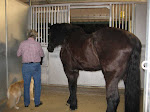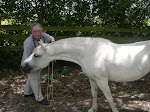The word lazy is a fairly recent addition to the English language. It entered our language sometime during the 16th century (1500’s) and means idle or slothful. The orgin is uncertain.
The definition following the above one is lazy-tongs, meaning a tool that allows one to get objects beyond arm reach.
Some people use the word lazy to describe anyone who doesn’t do things the way they do them.
I believe there are a number of different types of lazy. There is a type of laziness that means someone isn’t doing a task at all. This may be for any number of reasons; they don’t how to do it, they are afraid of it, they just flat don’t want to do it
There is the type of laziness where someone is trying to avoid an unpleasant task, which is more properly called procrastination. Or procrastination can happen because the person realizes that once she is involved it will be a long time before she can stop doing whatever it is.
There is also the case where someone may appear to be lazy because they are so good at what they do they finish long before anyone else.
There is a smart lazy where someone figures out the best way to do a task. Someone who is really good at what they are doing can make it appear simple, easy, and requiring very little time or effort to accomplish.
Recently I was watching The Dog Whisperer where Cesar Millan was instructing the owner and employees of a grooming shop about handling difficult dogs. At one point the client commented, “That took you thirty minutes to accomplish.” And Cesar shot back “No, it took me thirty-five years.”
Cesar accomplished his miracles by being very quiet, confident and focused on his task. The shop owner was a man who came to the grooming business from the corporate world and was a busy, go-go type. He didn’t realize that by taking the time now to retrain these animals he would save a lot of time in the future. Cesar also suggested that he have a price structure on his lists that told the customers upfront that they were going to be charged for this extra service. All of which made good sense to me.
I have learned over the years to project a quiet, calm, assertive manner around various animals. I am especially good with horses, but I don’t do so badly with cats, dogs, goats, cattle or sheep. I can even sometimes convince wild rabbits, coyotes and other assorted wild animals I am not such a bad person to be near. Sometimes what I'm doing to deal with a difficult animal can appear as if I doing nothing at all with the animal.
I recently worked with a horse that did not respond to the usual ways of "catch-training" in a satisfactory manner. I set up to change his mind by turning the horses into my yard and then sat down in the area I created for my clients to use while I still had a public stable. I had a drink, a book, grooming equipment and a lot of carrots.
I set up a rule that only one horse at a time could be in the area. One by one the rest of the horses came up for grooming and carrots. No one was allowed to drive the others away and no one was allowed to "hog" all the attention.
It took nearly two hours and almost a whole book but finally he sneaked over to see what was going on. I ignored him until he reached out and nudged me. Then I gave him a carrot coin (piece of carrot the size of a quarter in this case) and continued reading until he nudged me again. That time he got a scritch on his neck. It took another hour but evenually I had him groomed and playing an advanced version of the Friendly Game.
Since I spent a lot of that time sitting there with my nose in a book there are horse trainers that would say I was "lazy" yet, when you look at the fact that I groomed six horses, and convinced a difficult people-shy horse to accept handling during that four hour period could you truly call that "lazy?"
I’ve also seen a lot of cases where people set themselves up for a lot of hard work by failing to do something small right at the beginning. Instead of a quick, small correction to prevent a horse, dog or cat from escalating a bad behavior they either don’t see it starting at all or they ignore it hoping it will just go away. Ignoring isn’t going to work. Better to be lazy and take steps to stop the problem in the very beginning.
I can do this with my animals, now if only I could convince myself that this is the best way to do housework; an area I can procrastinate in until the cows come home.
Lazy Trainer Tip
If you have a problem with your horse or dog watch carefully and try to see the very first tiny sign that the behavior you don’t want is starting. As soon as you see it quickly correct the animal. You do this in a quick, quiet manner and do no more than you have to. BUT you do just as much as you have to in order to get the desired effect. If the problem is long standing you may have quite a ruckus on your hands. If it is a dangerous problem find a professional you are comfortable with and respect and work with them to resolve the issue.
Subscribe to:
Post Comments (Atom)










No comments:
Post a Comment